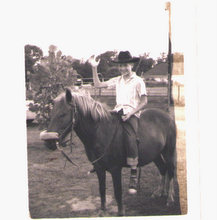
I was just a tot in the fifties. But apparently, Caucasian White men were treated wonderfully during this decade. Your wife stayed at home, cleaning your house during the day, ironing your shirts, did the family shopping and chores, taking care of the kids and cooking you and yours nutritious home cooked meals.
At work you were addressed as Mr. So and so while the women at work were girls and were addressed by their first names. The women made you coffee and brought in home made streudel for you to sample.
Of course most housewives didn't have it that bad either. They stayed home. Coffee clutched with their neighbors, smoked, played cards, and watched Arthur Godfrey during the day. After the kids came home they made sure they did their homework and allowed no shenanigans.
Women were limited to women only professions. This created a supply and demand advantage for education and nursing. A principal could choose the pick of the litter from the local normal school and the town would have a dedicated, smart, hard working, non-unionized teacher for life, or at least until the sounding of wedding bells. The hospital administrators could in turn get hard working non-unionized nurses for a song. America was the envy of the world for it's schools and health care system.
Bachelor men were pampered at work and even the ugliest of them were looked up to by the ladies. His social card was filled with dinner engagements. He was considered "eligible" and was constantly being given home made baked goods by the eligible bachelorettes at the office. Keeping his waistline was a problem for a bachelor in an office setting.
After work he could pick and choose the apples off the tree. As this was before "the pill" he had to be ginger in choosing his apples as otherwise, he might have to acquire a plant for his backyard.
In the sixties everything changed. It turns out that bra burning was an urban myth. Women didn't burn their bras but various women's groups were created and demands were made for equal pay and equal rights for women. For men, life was never the same.
editor's note: to be continued.



